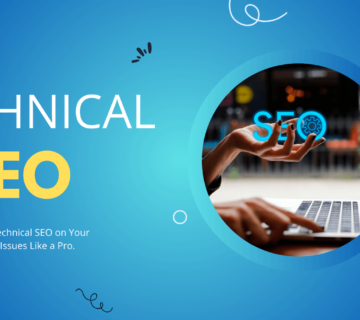The digital landscape is constantly evolving, and Search Engine Optimization (SEO) remains at the forefront of driving organic traffic to websites. Over the years, SEO strategies have transformed drastically, adapting to the dynamic algorithms of search engines. As we move forward, the role of Artificial Intelligence (AI) in SEO is becoming increasingly prominent, revolutionizing the way websites optimize their content and improve rankings. In this blog, we’ll explore the power of AI for SEO and how it shapes the future of search engine optimization.
Understanding AI for SEO:
Artificial Intelligence, with its advanced algorithms and data processing capabilities, is proving to be a game-changer for SEO professionals. AI for SEO involves leveraging machine learning and natural language processing to analyze vast amounts of data, identify patterns, and predict search engine behaviors accurately. This enables marketers to develop more effective and data-driven SEO strategies.
AI-Driven Content Creation:
Content has always been king in SEO, but AI is taking it to new heights. AI-powered tools can generate high-quality content based on specific keywords, audience preferences, and search intent. These tools help save time and resources for content creators while ensuring the production of relevant and engaging content.
Enhanced Keyword Research:
Keywords play a vital role in SEO strategies. With AI, keyword research becomes more efficient and precise. AI tools can analyze search trends, user behavior, and competitor data to identify the most relevant and high-traffic keywords. By incorporating these keywords strategically, websites can boost their search rankings and attract targeted traffic.
Personalization and User Experience:
AI’s ability to analyze user behavior and preferences enables websites to personalize the user experience. By understanding what content resonates with individual users, AI can deliver tailored recommendations, ultimately increasing user engagement and dwell time. Search engines take user experience into account when ranking websites, making personalization a crucial aspect of modern SEO.
AI SEO Audits:
Conducting regular SEO audits is essential to identify areas for improvement. AI-driven SEO audit tools can comprehensively analyze websites for technical issues, broken links, and on-page optimizations. These audits provide detailed reports, enabling SEO professionals to fine-tune their strategies and enhance website performance.
Voice Search Optimization:
The rise of voice-activated devices and virtual assistants has transformed the way users conduct searches. AI plays a crucial role in voice search optimization by understanding natural language queries and providing accurate answers. Websites that optimize their content for voice search are more likely to appear in featured snippets and voice search results.
Predictive Analytics for SEO:
AI’s predictive analytics capabilities allow SEO professionals to forecast future search trends and algorithm updates. By analyzing historical data and user behavior, AI can provide insights into potential changes in search engine rankings and optimize SEO strategies accordingly.
Conclusion
As the digital landscape evolves, embracing AI for SEO has become a necessity rather than an option. AI-powered tools and strategies offer unmatched efficiency, precision, and scalability, helping websites stay ahead in the competitive world of search engine rankings. From content creation to personalized user experiences and predictive analytics, the role of AI in SEO is undeniable.
To stay relevant and competitive in the future of SEO, businesses and marketers must integrate AI into their strategies and leverage its power to drive organic traffic, enhance user experiences, and secure top positions on search engine results pages. Embracing AI for SEO will undoubtedly shape the future of search engine optimization, opening up new possibilities and opportunities for online success.
Rahul Tripathi is a seasoned Digital Marketing Expert from India with over 14 years of industry experience. He holds a Bachelor of Commerce from Gujarat University and a Postgraduate Diploma in Digital Marketing from GTU.
Rahul specializes in driving business growth through data-driven strategies that generate high-quality leads, boost sales, and maximize ROI. With a deep understanding of SEO, performance marketing, and brand positioning, he is passionate about helping businesses enhance their online visibility and build a lasting digital presence.





